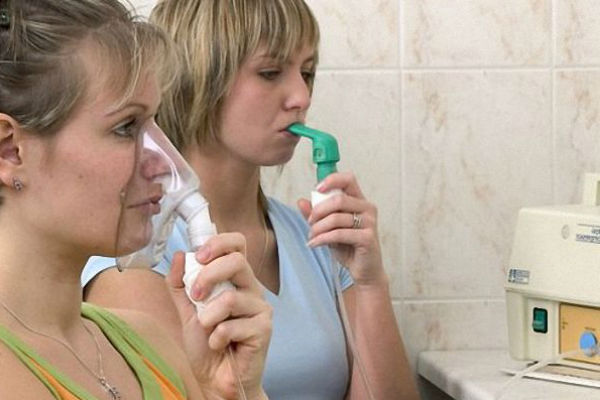Consumption of molecular hydrogen in the human body during inhalation of hydrogen gasScientific Research

Molecular Hydrogen Consumption in the Human Body During the Inhalation of Hydrogen Gas
Abstract
Breathing or ingesting hydrogen (H2) ameliorates damage caused by oxidative stress in animal models and humans. We previously reported that the entire body consumes H2 after ingesting H2-enriched water with a rate of H2 consumption (VH2) of 1.0 μmol/min/m2 body surface area. To confirm this result, we evaluated VH2 during inhalation of small amounts of H2 gas. Subjects inhaled a small amount (160 ppm) of H2 gas mixed with purified artificial air after measuring baseline levels of H2 exhaled during room air breathing through a one-way valve and mouthpiece. Their inhaled and exhaled H2 levels were measured by gas chromatography using semiconductor sensors. VH2 was calculated using ventilation equations derived from inhaled and exhaled O2/CO2/H2 concentrations and exhaled minute ventilation, measured using the Respimonitor. As a result, a VH2 value of about 0.7 μmol/min/m2BSA was found, which is consistent with the results we obtained using H2-rich water. When fasting was not used before treatment to reduce colonic fermentation, VH2 changed significantly, ie. H. When the subject’s baseline breath hydrogen level is 10 ppm or higher. Our H2 inhalation method can be used to non-invasively monitor the production of hydroxyl radicals in the human body.
References
Halliwell B, Gutterridge JMC (2007) Free radicals in biology and medicine, 4th edn. Oxford University Press, Oxford
Ohsawa I, Ishikawa M, Takahashi K et al (2007) Hydrogen acts as a therapeutic antioxidant by selectively reducing cytotoxic oxygen radicals. Nat Med 13(6):688–694
Hayashida K, Sano M, Ohsawa I et al (2008) Inhalation of hydrogen gas reduces infarct size in the rat model of myocardial ischemia-reperfusion injury. Biochem Biophys Res Commun 373(1):30–35
Fukuda K, Asoh S, Ishikawa M, Yamamoto Y, Ohsawa I, Ohta S (2007) Inhalation of hydrogen gas suppresses hepatic injury caused by ischemia/reperfusion through reducing oxidative stress. Biochem Biophys Res Commun 361(3):670–674
Ohta S (2011) Recent progress toward hydrogen medicine: potential of molecular hydrogen for preventive and therapeutic applications. Curr Pharm Des 17(22):2241–2252
Shimouchi A, Nose K, Shirai M, Kondo T (2012) Estimation of molecular hydrogen consumption in the human whole body after the ingestion of hydrogen-rich water. Adv Exp Med Biol 737:245–250
Ravishankara AR, Nicovich JM, Thompson RL, Tuliyt FP (1981) Kinetic study of the reaction of OH with H, and D, from 250 to 1050 K. J Phys Chem 85(17):2498–2503
Smith IWM, Zelmer R (1974) Rate measurements of reactions of OH by resonance absorption. Part 3.-Reactions of OH with H2, D2, and hydrogen and deuterium halides. J Chem Soc Faraday Trans 270:1045–1056
Zhang DH, Light JC (1966) A six dimensional quantum study for atom–triatom reactions: the H + H2O → H2 + OH reaction. J Chem Phys 104:4544–4553
Levitt MD, Bond JH, Levitt DG (1981) Gastrointestinal gas. In: Johnson LR (ed) Physiology of the gastrointestinal tracts. Raven, New York, pp 1301–1315
DOI: 10.1007
Published on: 20130101
Molecular Hydrogen Consumption in the Human Body During the Inhalation of Hydrogen Gas
Abstract
Breathing or ingesting hydrogen (H2) ameliorates damage caused by oxidative stress in animal models and humans. We previously reported that the entire body consumes H2 after ingesting H2-enriched water with a rate of H2 consumption (VH2) of 1.0 μmol/min/m2 body surface area. To confirm this result, we evaluated VH2 during inhalation of small amounts of H2 gas. Subjects inhaled a small amount (160 ppm) of H2 gas mixed with purified artificial air after measuring baseline levels of H2 exhaled during room air breathing through a one-way valve and mouthpiece. Their inhaled and exhaled H2 levels were measured by gas chromatography using semiconductor sensors. VH2 was calculated using ventilation equations derived from inhaled and exhaled O2/CO2/H2 concentrations and exhaled minute ventilation, measured using the Respimonitor. As a result, a VH2 value of about 0.7 μmol/min/m2BSA was found, which is consistent with the results we obtained using H2-rich water. When fasting was not used before treatment to reduce colonic fermentation, VH2 changed significantly, ie. H. When the subject’s baseline breath hydrogen level is 10 ppm or higher. Our H2 inhalation method can be used to non-invasively monitor the production of hydroxyl radicals in the human body.
References
Halliwell B, Gutterridge JMC (2007) Free radicals in biology and medicine, 4th edn. Oxford University Press, Oxford
Ohsawa I, Ishikawa M, Takahashi K et al (2007) Hydrogen acts as a therapeutic antioxidant by selectively reducing cytotoxic oxygen radicals. Nat Med 13(6):688–694
Hayashida K, Sano M, Ohsawa I et al (2008) Inhalation of hydrogen gas reduces infarct size in the rat model of myocardial ischemia-reperfusion injury. Biochem Biophys Res Commun 373(1):30–35
Fukuda K, Asoh S, Ishikawa M, Yamamoto Y, Ohsawa I, Ohta S (2007) Inhalation of hydrogen gas suppresses hepatic injury caused by ischemia/reperfusion through reducing oxidative stress. Biochem Biophys Res Commun 361(3):670–674
Ohta S (2011) Recent progress toward hydrogen medicine: potential of molecular hydrogen for preventive and therapeutic applications. Curr Pharm Des 17(22):2241–2252
Shimouchi A, Nose K, Shirai M, Kondo T (2012) Estimation of molecular hydrogen consumption in the human whole body after the ingestion of hydrogen-rich water. Adv Exp Med Biol 737:245–250
Ravishankara AR, Nicovich JM, Thompson RL, Tuliyt FP (1981) Kinetic study of the reaction of OH with H, and D, from 250 to 1050 K. J Phys Chem 85(17):2498–2503
Smith IWM, Zelmer R (1974) Rate measurements of reactions of OH by resonance absorption. Part 3.-Reactions of OH with H2, D2, and hydrogen and deuterium halides. J Chem Soc Faraday Trans 270:1045–1056
Zhang DH, Light JC (1966) A six dimensional quantum study for atom–triatom reactions: the H + H2O → H2 + OH reaction. J Chem Phys 104:4544–4553
Levitt MD, Bond JH, Levitt DG (1981) Gastrointestinal gas. In: Johnson LR (ed) Physiology of the gastrointestinal tracts. Raven, New York, pp 1301–1315



